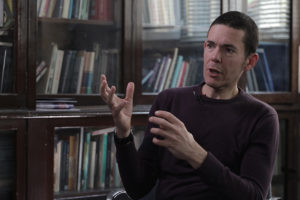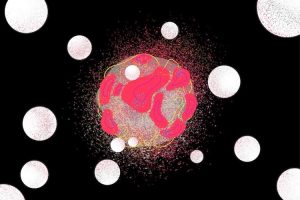Speech Processing
Neuroscientist Sophie Scott on humans’ ability to distinguish sounds, bilingualism, and the Japanese language
When do people laugh the most? What is the function of laughter? What are the different kinds of laughter? These and other questions are answered by Professor of Cognitive Neuroscience at University College London, Sophie Scott.
The video is a part of the project British Scientists produced in collaboration between Serious Science and the British Council.
People laugh very-very frequently. Robert Provine back in the US has found that if you ask people ‘When do you laugh? What do you laugh at?’ – people talk about jokes, and humor, and comedy. If you look at people, what you find is that they laugh when they are with other people, it’s a social behavior. Most laughter is not found at humor per se, it’s found in conversations, it happens when people are talking to each other. And he also found that within those conversations most of that laughter is still not at jokes – people laugh at comments and statements like ‘I’ll have another cup of coffee’ or ‘I might miss my bus’.
We did a cross-cultural study looking at which emotions are recognized from the voice in cultures that have never encountered a European person making noises at them. My PhD student went off to work with the Himba in Northern Namibia. What she found was, as has been shown on the face, people in completely different cultures can recognize the emotions of fear, anger, disgust, sadness and surprise. All the other works have been done with the face and she has been doing with the voice, so people in the middle of a Namibian desert, if they hear a sobbing sound, they know what that means.
We are not the only animals that laugh. Laughter has been described in other apes, and it has even been described in rats. And there is probably more of it out there, it’s just people haven’t really been looking for it. And interestingly, if you are a human, an ape or a rat, you first see laughter emerging in the same context, which is when babies are tickled by adults – normally, their parents. And you don’t see laughter sort of emerging on its own, it happens in these interactions.

Neuroscientist Sophie Scott on humans’ ability to distinguish sounds, bilingualism, and the Japanese language

Geographer Mathias Disney on carbonate deposits in the ocean, how wildfires release the carbon in the atmosphe...

Molecular oncologist Matthias Dobbelstein on targeted therapies, gene p53, and DNA damage